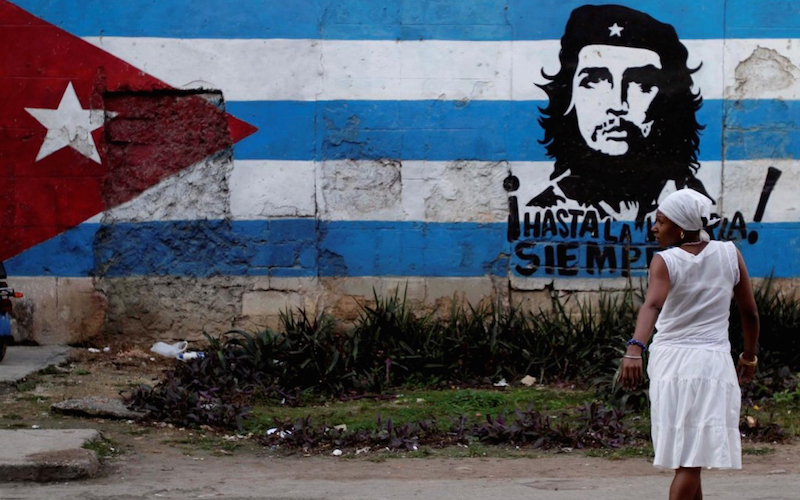
Cuban Communists Warped Sense of Nationalism
Cuba’s communists like to wrap themselves in the Cuban flag in order to legitimize the mysterious aurora invoked by Cuban nationalism. This is quite perplexing given that Marxism is an internationalist ideology that is antipathetic towards nationalism, which is seen as a bourgeois ideology that stirs up chauvinistic attitudes among the working classes.
In spite of this dogma, the Cuban Communist Party has been arguably the most nationalistic of any communist party (surpassing even Vietnam) for a very simple reason. It is no secret that the Cuban people are very nationalistic and view their culture, customs, traditions and history (rightly so) as completely unique in the Latin American experience. As a result, Cuba’s regime has sought to co-opt the very idea of Cuban nationalism, injecting it permanently with Marxist-Leninist overtones.
This has not been unique in Communist spheres. Communist ideology was worked out and refined during the late 19th and early 20th century, a time of ultra-nationalism in the European capitals where the early Marxists congregated.
Communist theorists therefore could not ignore the poignant issue of national pride as well as the reality that the world is divided into many different nations with many different peoples and would remain so for a very long time.
Their philosophical answer to this conundrum was the invention of a concept known as socialist patriotism, a domestic counterpart to the proletarian internationalism that formed the core of communism’s foreign relations. It allowed communists and their governments to tap into domestic nationalistic fervor while also maintaining the international appeal of Marxism.
It is this contradictory socialist patriotism that is in play in Cuba today. The type of false nationalism that allowed the Cuban communists in the 1960s to haughtily condemn Batista and other previous Cuban leaders as American lackeys while they turned Cuba’s countryside into a Soviet military installation, taking policy orders from Moscow, sending Cuba’s young men to fight on behalf of Soviet international concerns, and turning the Russian language into Cuba’s unofficial second language.
This new form of one-sided Cuban nationalism is nothing more than a way to channel the intense anti-Americanism of Cuba’s communists into the Cuban body politic. It comes down to this, the Cuban Communist Party does not desire an independent Cuba but rather a Cuba independent of its primary international enemy, the United States. This position is completely contrary to the authentic Cuban nationalism of the martyrs and heroes of the Cuban Wars of Independence who struggled for a free Cuba that was beholden to no masters whether Spanish, American, Russian or Venezuelan.
It turns the concept of Cuban nationalism into another ideological weapon. A weapon that helps to perpetuate the primacy of The Party in Cuban society by feeding into the metaphorical cult of the ever present enemy.

